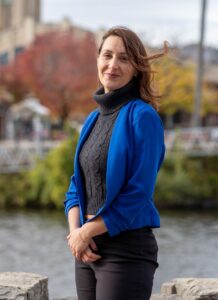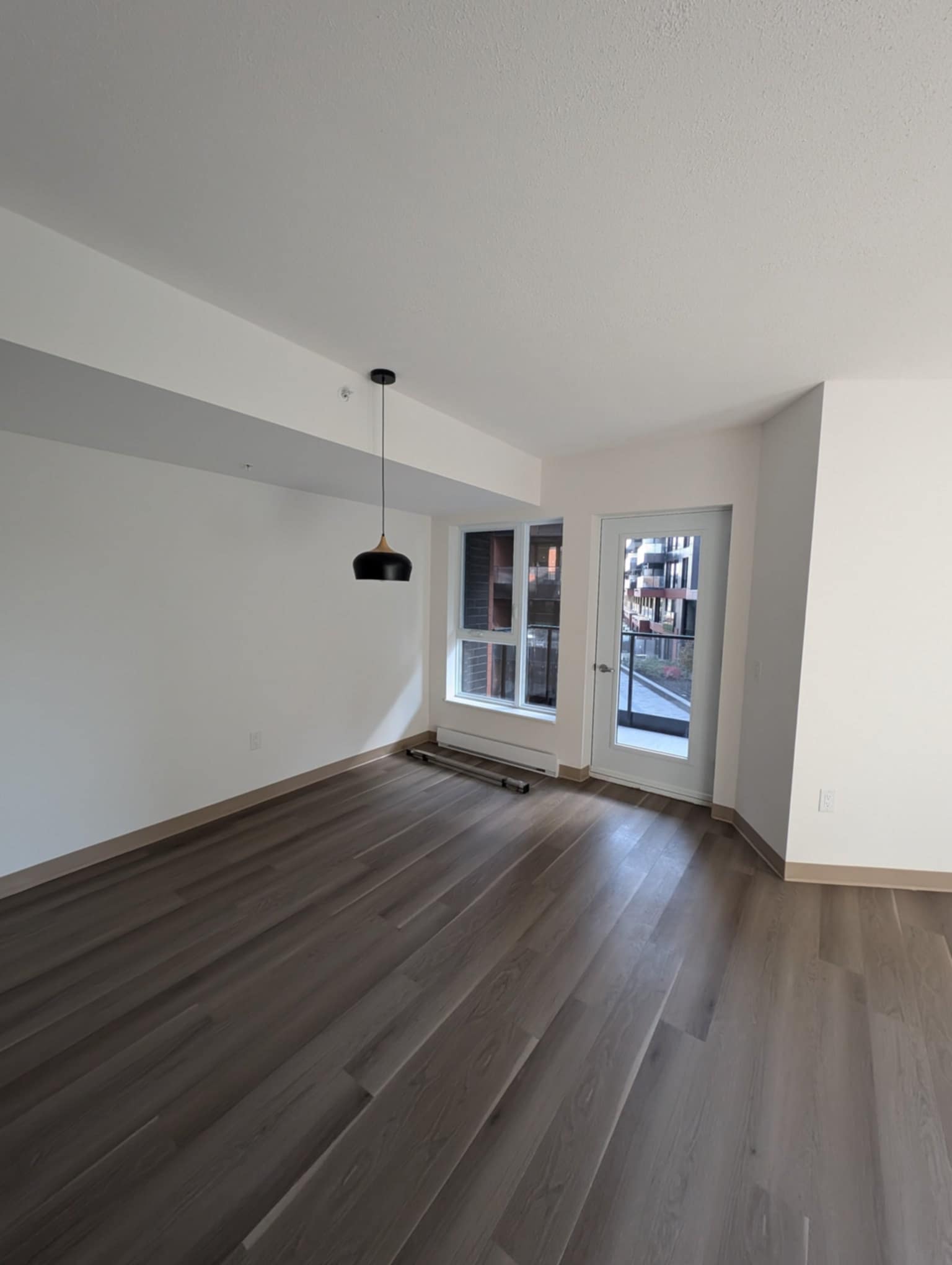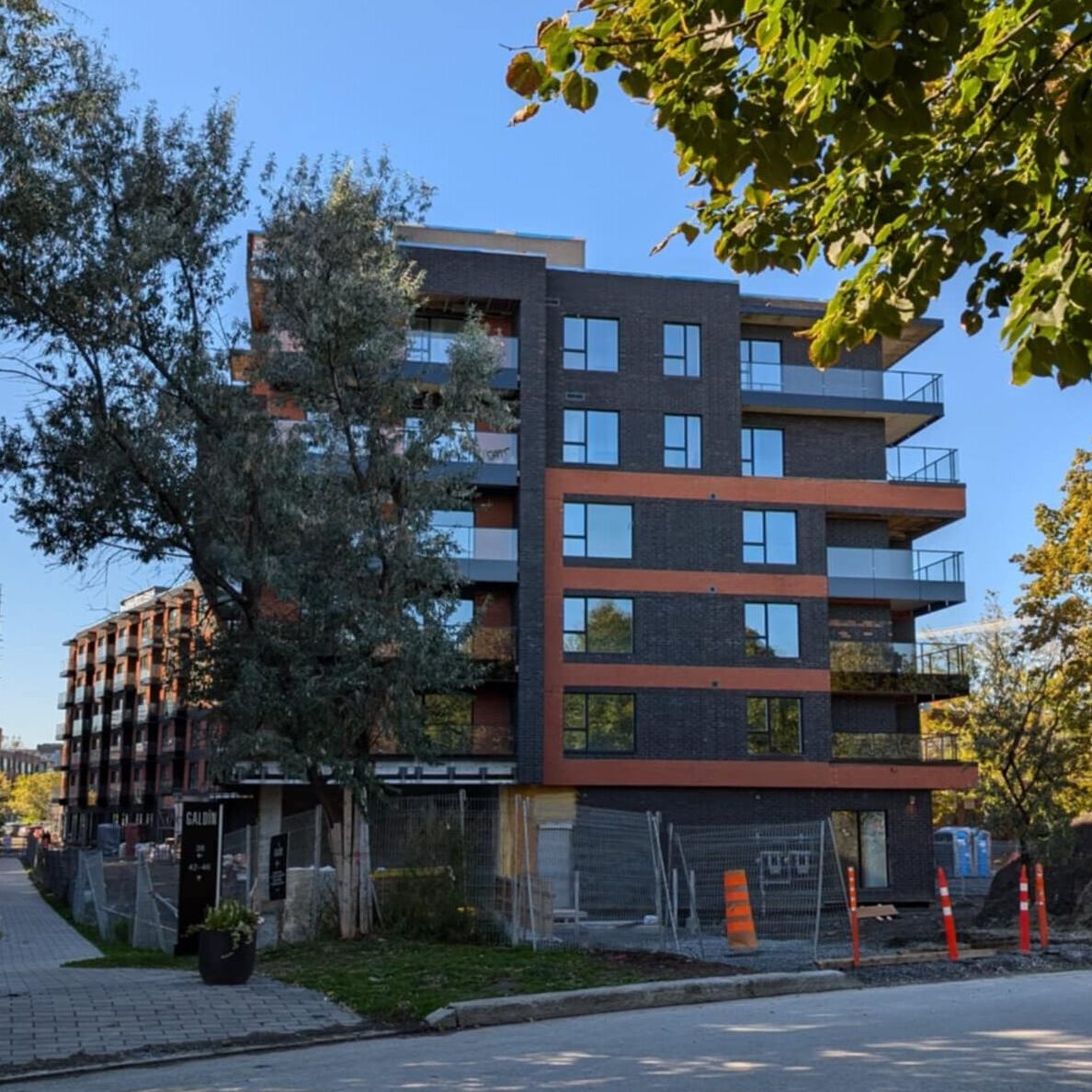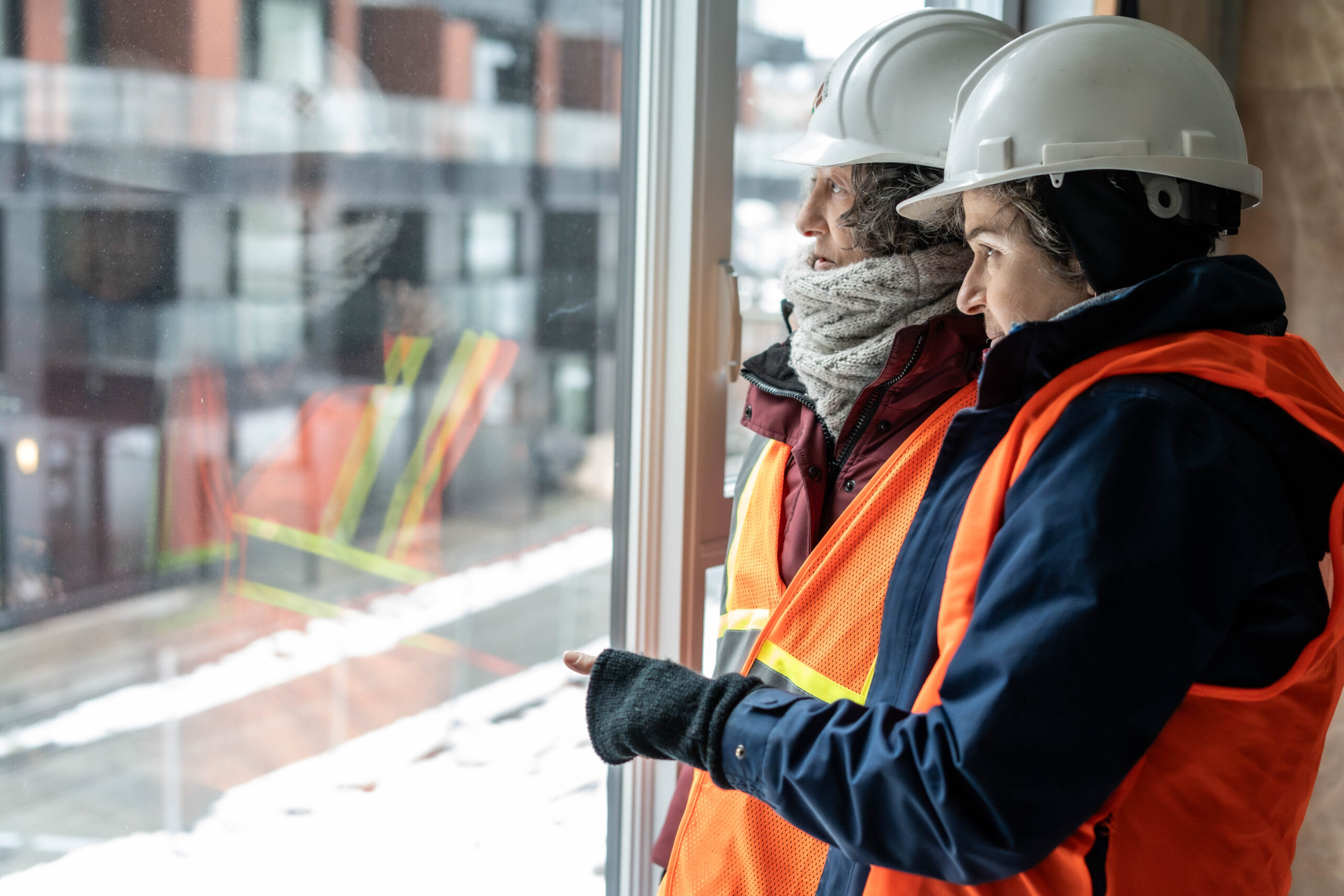In the heart of the Saint-Henri neighborhood now stands a large building with 112 rental units. For Logifem, this means 35 permanent housing units will be made available to 35 women experiencing or at risk of homelessness, either single women or single mothers. This is another significant step forward for our organization!
The LoReLi project, developed jointly by Logifem, Libr’Elles, and La Maison des Rebelles, and supported by the Société d’Habitation du Québec, the Canada Mortgage and Housing Corporation, as well as the City of Montreal, addresses the worsening housing crisis since the pandemic and provides support to those left behind.
After the first residents move into Les Voisines du Canal, we sat down with Hélène Bertocchi, a community organizer at Logifem for over two years and one of the main coordinators of the ‘Voisines du Canal’ project.
What does the Voisin.es du Canal project represent for Logifem?
H: This permanent housing project is our latest baby at Logifem. It’s a huge source of pride because it’s our first permanent housing initiative. Until now, we’ve only offered shelter housing and transitional apartments where women can stay for up to three years. So, Les Voisin.es du Canal is a solution to the housing crisis and the challenges faced by these single women and mothers in finding long-term, stable, safe, well-maintained, and affordable housing. They deserve that.
Where did the idea for this project come from?
H: Our executive director, Sally Richmond, was determined to expand Logifem’s offerings. Within the organization, we noticed that some women would return to our temporary housing after several years, the cycle of homelessness would begin again, and there were few solutions available after temporary housing. On a broader scale, the housing crisis is intensifying, and the waiting lists for accommodation are growing increasingly long.
This idea of permanent housing came from Sally. She partnered with ‘Bâtir son quartier,’ an organization specializing in coordinating the development of community housing. Next came the phase of finding a construction project that aligned with our identity and needs. The site at 4700 was identified, and Logifem, La Maison des Rebelles, and Libr’Elles joined forces to seek funding and develop the project, with guidance from Bâtir son quartier.
What is your role in this project?
H: My role initially involved selecting tenants with the help of a selection committee created specifically for this purpose. This committee includes staff and volunteers from Logifem. I also organized several information sessions in Montreal to present our project and recruit partner organizations specializing in domestic violence, homelessness, addiction issues, and related sectors.
You mentioned a selection committee. How did they go about selecting tenants?
H: We received over 100 applications for just 35 available units, which shows the urgent need for housing. It was very difficult to evaluate all these applicants, as they are all in need. Choices had to be made, and it wasn’t easy. We decided to base the selection on a multi-level scoring system to ensure objectivity.
The first level involved meeting the requirements of the Rent Supplement Program (PSL), a financial aid initiative by the Quebec government that allows low-income households or non-profits to pay rent equal to 25% of their income. This meant assessing several criteria, such as immigration status, student status, household size, annual income, and debt history. These criteria are set by the Office Municipal d’Habitation de Montréal (OMHM). Unfortunately, this eliminated some women in need.
After determining a candidate’s PSL eligibility, what’s the next step?
H: We interview the candidates and evaluate two major criteria: community living—since these are community apartments—and autonomy, as these are independent units. The concept behind Les Voisin.es du Canal emphasizes being a good neighbor, which is why we assess community living skills. We also evaluate autonomy regarding mental and physical health. Additionally, our program is designed for those experiencing or at risk of homelessness, which is another criterion we consider.
What will your role be once tenants move into Les Voisin.es du Canal?
H: Once the tenants move in, my role will evolve. The goal is to build a community, ensuring everything runs smoothly. The Voisin.es du Canal will be like musicians in an orchestra, and I will be the conductor, making sure the community works harmoniously, resolving issues when needed, and bringing the community to life. It’s about creating beautiful music together.
What advantages does living in the Saint-Henri neighborhood offer?
H: We’re fortunate to be in a vibrant neighborhood. There’s a recreation and sports center right across from our building, offering activities for both adults and children. Several community organizations are also based there. The area is dynamic and full of resources, including food banks and other community services. It’s not always easy to walk into a food bank, but doing it together as neighbors, as friends, with motivation from a community organizer—‘Let’s go, ladies, today we’re going to the food bank together!’—makes a difference. It takes courage, but the idea is to facilitate these connections, build protective factors, and foster security.
What does the sense of community mean for the future Voisin.es du Canal?
H: Living in a community helps develop a sense of belonging, which is a powerful protective factor against many challenges. Building a sense of belonging within the Voisin.es du Canal is one of the project’s greatest gifts for these women.




